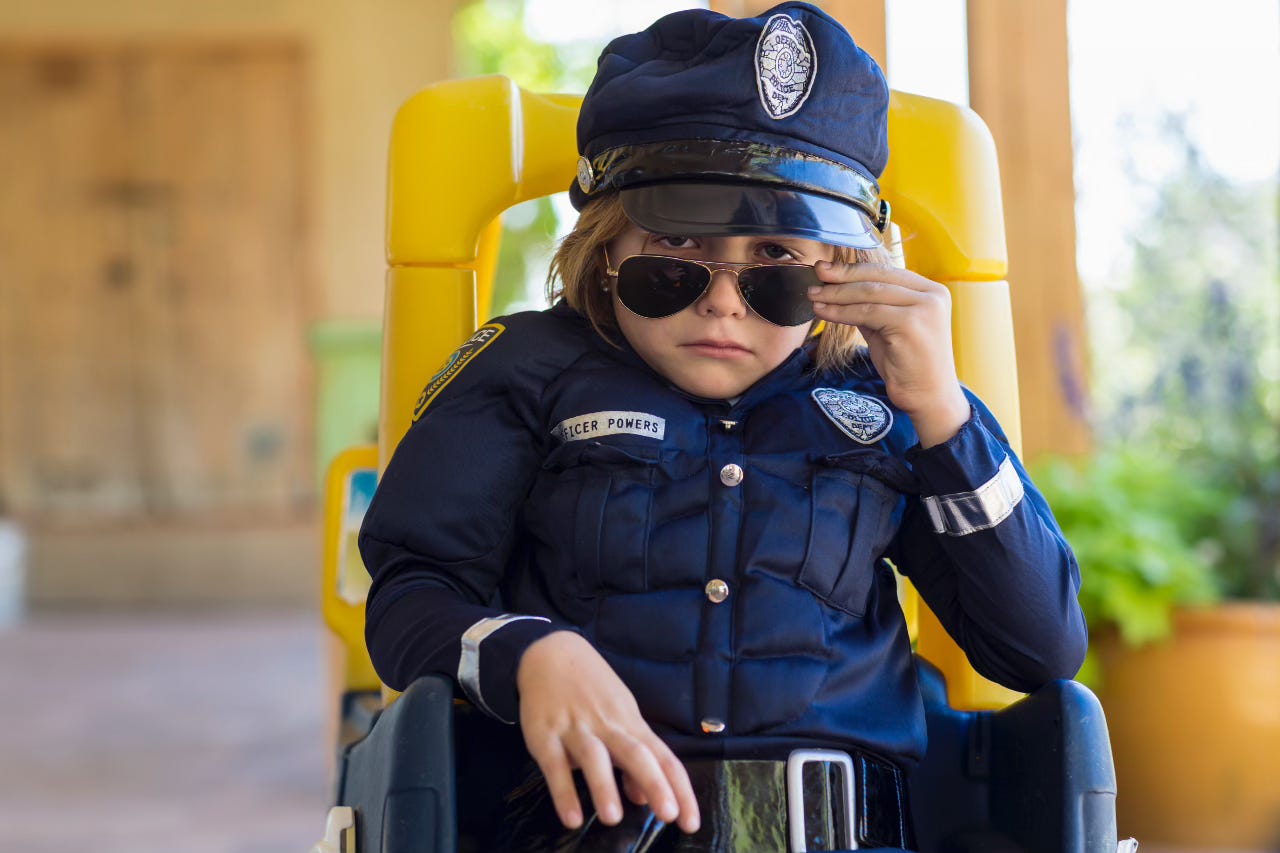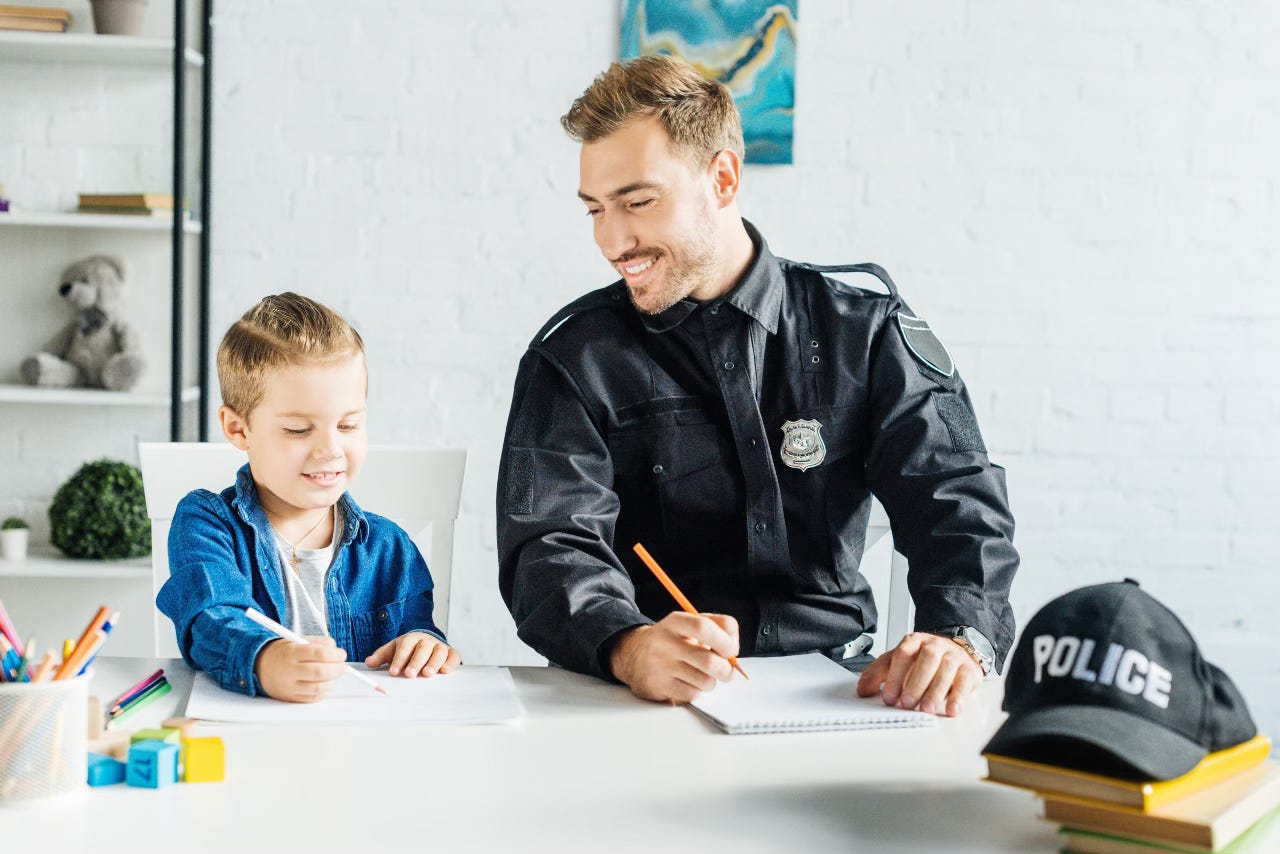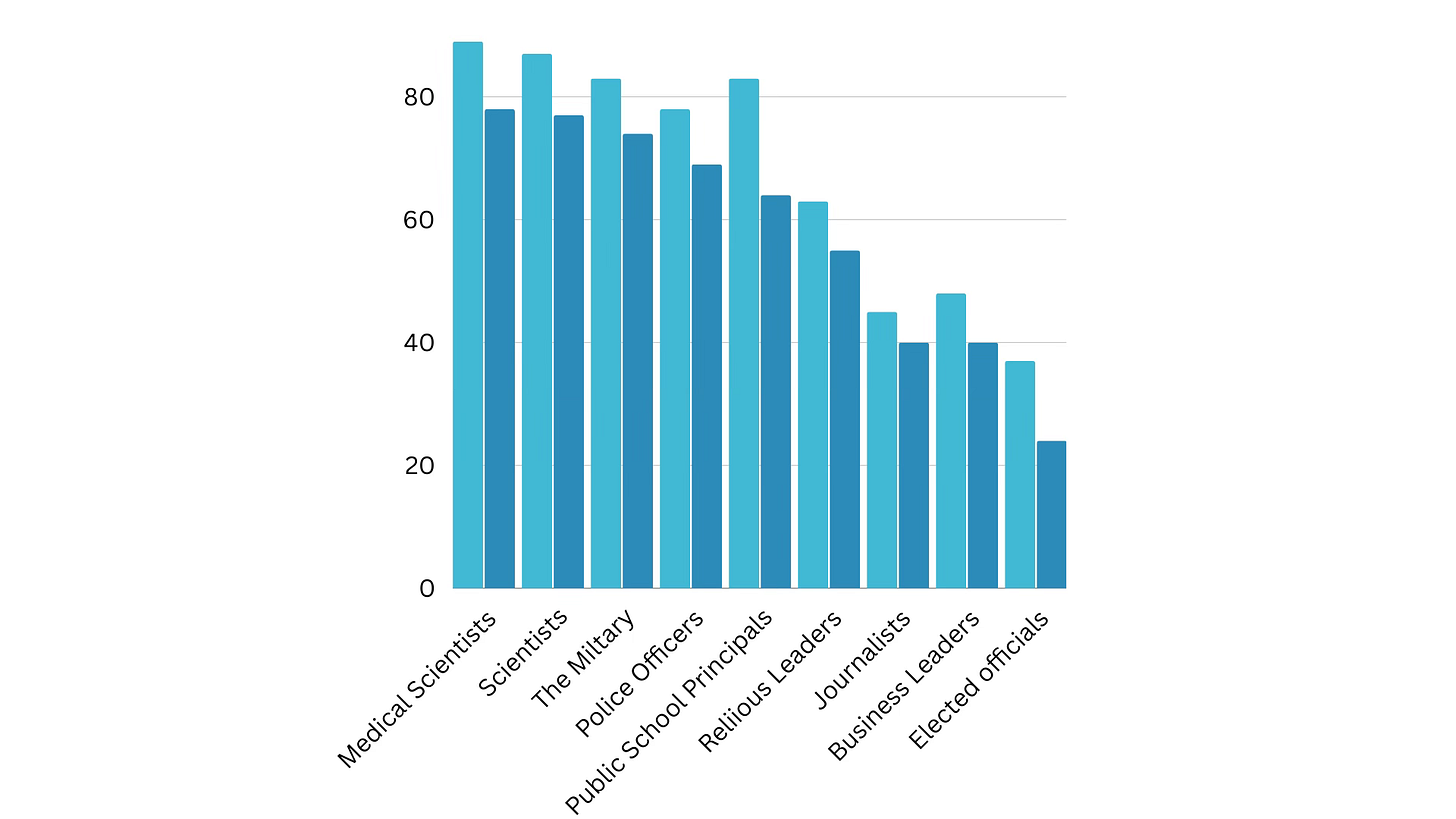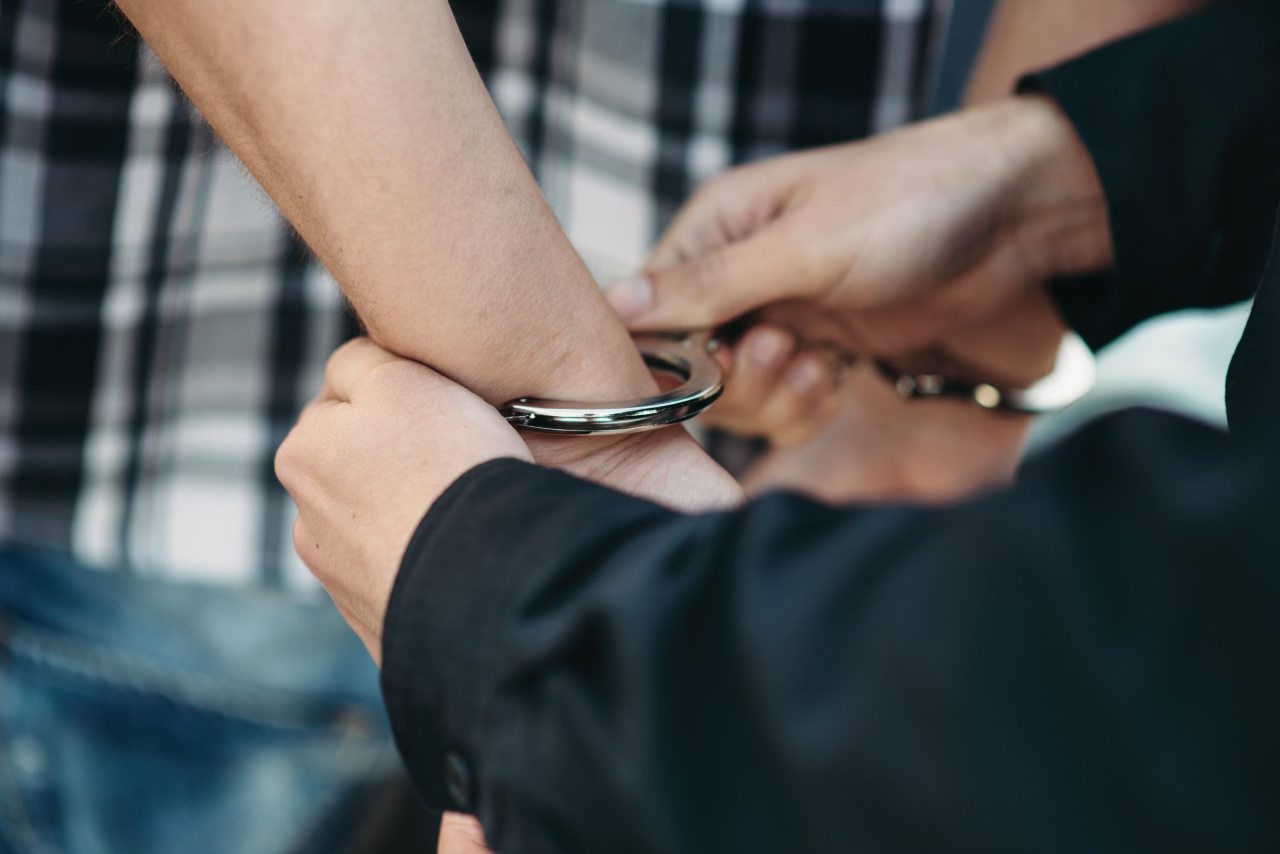Big Lie: The Public Doesn’t Trust or Support the Police
The media would like you to believe that confidence in law enforcement has cratered. That’s false, for now.
The pursuit of community trust
Prior to 2020, there was a great discussion of building community trust between the police and the public.
There was a humanize the badge directive from the top down. We started seeing more and more social media posts of officers doing a wellness check and then cooking the citizen breakfast on the stove. Others show cops in uniform mowing a lawn or cleaning a sink full of dirty dishes. Obviously, there were always photos confirming, so you have one officer pushing the mower and another taking the photo and emailing it to media relations. I had to follow senior staff to the homeless shelter to take pictures of them reading to children.
President Obama’s Task Force on 21st Century Policing in 2015 focused on law enforcement to strengthen community trust. Director Ronald L. Davis of the Office of Community Oriented Policing Services states:
“I have often said that advancement of community policing is the key strategy for improving public safety and security in this nation, and if the collaboration and strategizing I observed yesterday is any indication of what the future holds, we are moving in the right direction. But there is still work to be done.”
To be clear, the presidential task force was a reform initiative that resulted in a to-do list to solve the law enforcement problem of community trust. It requires little research to find out that the police polled quite high in public trust, even during that time, in the mid 2010s, despite the high-profile incidents of that period.
Still trusted after our worst hit
The week after the death of George Floyd, the public opinion of law enforcement was about as low as it was going to ever go. However, that is good news. According to Pew Research, trust in law enforcement fell significantly, but only about nine points, from 78% to 69%. That drop was primarily caused by public perception that the white police killed a black citizen, wanton and callously, in Minneapolis on Memorial Day 2020.
Lately, thanks to the groundbreaking work of Liz Collin, Dr. J.C. Chaix, and Alpha News MN, reaching the world through the book ‘They’re Lying’ and the documentary film ‘The Fall of Minneapolis’ many legends including the murder of Floyd have been disabused. Today major influential voices, Megyn Kelly, Tucker Carlson, Glenn Loury and John McWhorter, among many others, speak matter-of-factly that Floyd wasn’t murdered, and that Chauvin was wrongly convicted of charges that never should never have been brought forward.
Even post-Floyd, we have seen law enforcement retain a great deal of trust within society.
While you may not, at first glance, consider 69% acceptance and trust to be great, within the survey group only three groups, medical scientists, scientists, and the U.S. military garnered more trust, most had drops of the same percentage. Medical scientists experienced a drop from 89% in 2019 to 78% in 2021. Compared to other professions, 69% is higher than high school principals (64%), religious leaders (55%), journalists (40%), and elected officials at (24%).
But considering the scope of the police assignment within society, these are incredibly high numbers. The mission of law enforcement is to arrest everyone who needs to go to the booking office whether they choose to go peacefully or not. It’s a unique situation compared to all those other professions. Once arrest criteria has been established, the officer, deputy, agent, trooper, has to arrest the suspect and physically bring them to a booking office. In 2022, nationwide officers made 7.36 million arrests. Daniel Carr, JD, writes in his article “The Police Are Not the Problem” in the Police Law Newsletter (link in references) on Substack:
“In 2021 there were 1048 fatal officer-involved-shootings (OIS) (Statista). We know that the vast majority of OIS are justified. Meaning:
· Within department policy.
· In accordance with relevant training.
· Within the law.
· “objectively reasonable”
Those 15 (possibly) “unlawful” police shootings would account for .057% of homicides.”
Respect the trust
Public trust is not guaranteed forever. Increasing crime, which we are experiencing today, does not trend toward sustained trust or confidence in the future. Brave and bold leadership is necessary today in ensuring that officers have the ability to protect citizens and defend themselves. Taking non-lethal techniques off the table due to political pressure or optics endangers officers and suspects.
Creating new layers of unnecessary bureaucracy to officer reporting, such as the NYPD ‘How Many Stops’ policy implemented by political forces outside the police department, impedes public safety and disincentivizes officer initiative. The San Francisco Police expansion of use of force reporting has produced nothing but incorrect and valueless statistics and an array of concerns for officers in life-or-death encounters.
Police officers need and deserve leaders who will stand up to politicians and citizen review boards, armed with information and backed up by experts in the field, on the realities of controlling crime and increasing trust by policing professionally.
Please keep all peace officers in your prayers.
References:
https://www.statista.com/statistics/191261/number-of-arrests-for-all-offenses-in-the-us-since-1990/









Well said Roland! We gain trust by doing our jobs not by hosting shop with a cop and neighborhood barbecue’s. Another component of trust building overlooked takes place within the walls of the police department. Leaders need to care more about their people than the loud minority. Thanks again for your extremely valuable insight, wishing you a safe and healthy New Year